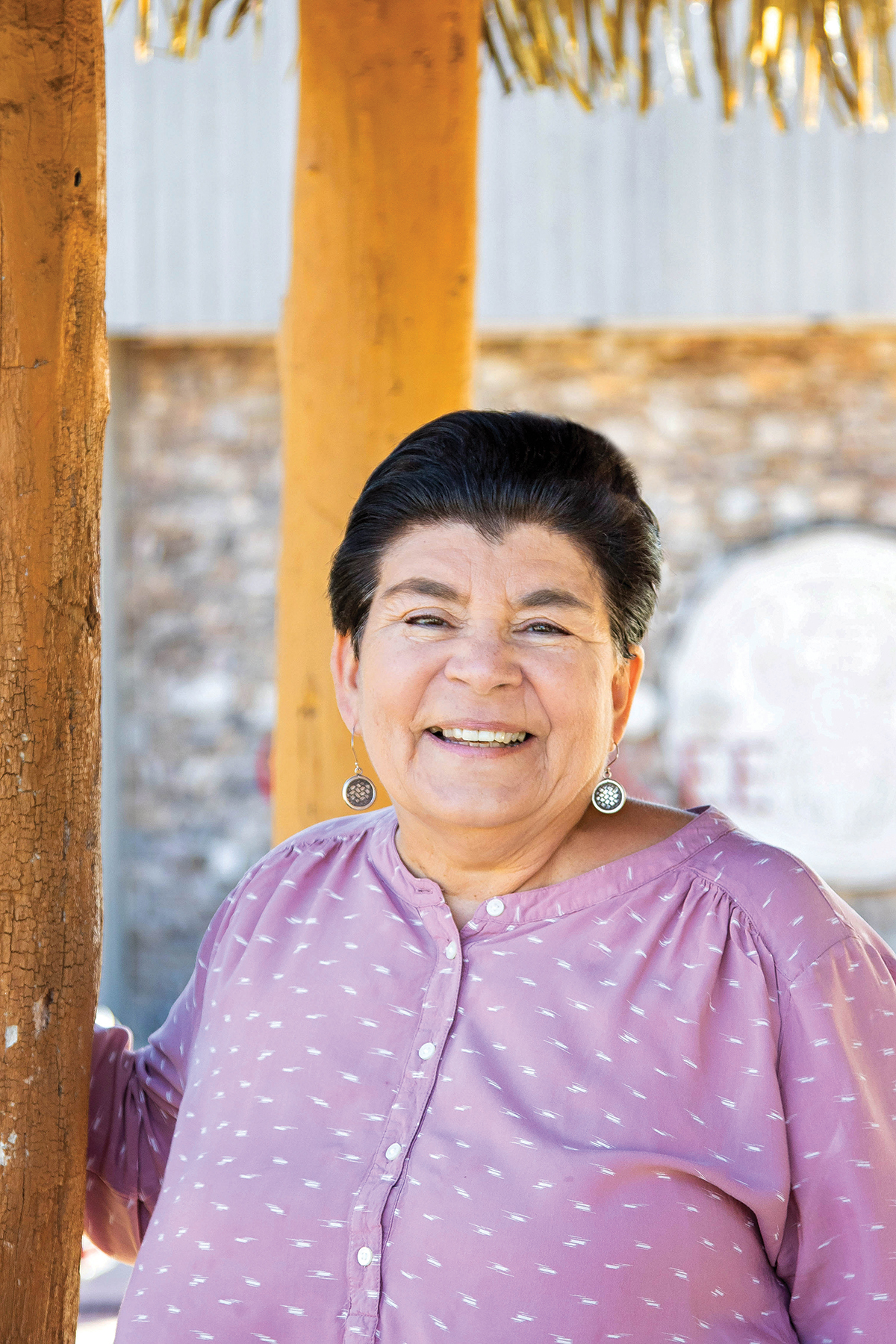New environmental film leads with positivity

“Leave only footsteps and break only silence,” says Cherokee historian and storyteller Kathi Littlejohn, who’s interviewed in the documentary Nature’s Wisdom Thru Native Eyes, debuting in Henderson County in June.
Portrait by Clay Nations
Most eco-documentaries are soul crushing. After watching gaunt polar bears eat plastic jetsam and insatiable wildfires destroy entire towns for 90 minutes, one can’t help but want to crawl into the fetal position. This anguish, says David Weintraub, is called “environmental despair” — and it’s not exactly productive.
“Environmental despair can be just as destructive as clear cutting and pesticide runoff because it doesn’t inspire people to do the right thing,” according to Weintraub, founder of the Center for Cultural Preservation and a prolific documentary filmmaker. “Just hearing about the damage we’ve collectively caused doesn’t do much to change it.”
In the years that he led Hendersonville’s now-defunct Environmental and Conservation Organization (ECO), Weintraub organized an annual environmental film festival that was, well, downright depressing. “Afterward, you felt like you may as well go to the nearest bar and drown your sorrows,” he remembers. “I tried to select happy movies, but it was slim pickings.”
Fortunately, the eco-documentary genre is soon to receive a more positive picture: Weintraub’s latest film, Nature’s Wisdom Thru Native Eyes. Premiering this June, the documentary explores the “close connection that native people have had with nature for tens of thousands of years, their understanding of how intelligent nature is, and the many lessons the living world has to teach,” Weintraub explains.
Rather than bombard viewers with doom and gloom, the film introduces straightforward, commonsense solutions to climate change. Case in point: the “Seventh Generation Principle.” According to this native philosophy, the decisions you make today should be made such that descendants seven generations from now will inherit a clean, healthy world rich in natural resources.
For example, says local Cherokee elder Davy Arch, a maskmaker who is the star of the film, “instead of cutting a hickory tree down to gather bark to rim a cane basket, we may just pull a strip of bark from that tree.” Thanks to this conservative approach, the tree lives on. “And we can come back years later and harvest more bark.”
Cherokee storyteller and historian Kathi Littlejohn, who’s also featured in Weintraub’s documentary, echoes this sentiment: “Being a good steward means I don’t use up my share,” she says.
When Littlejohn forages, for instance, she never pulls up the roots of wild flora. Instead, she carefully cuts the plant so that it will continue yielding sustenance. “Leave only footsteps,” Littlejohn advises, “and break only silence.”
In that way, Weintraub’s film is less of a call to action and more of a call to love.
“When we choose to nurture the earth, it nurtures us in the process,” he says.
The Center for Cultural Preservation presents Nature’s Wisdom Thru Native Eyes at the drive-in theater at North River Farms (3333 North Mills River Road, Mills River) on Saturday, June 24, at 7:30pm; at the Orange Peel (101 Biltmore Ave., Asheville) on Thursday, June 29, at 7:30pm; and at Trinity Presbyterian Church (900 Blythe St., Hendersonville) on Saturday, July 1, at 7:30pm. Outside locations are subject to date changes depending on weather. Ticket prices vary by location and advanced reservations are highly recommended. Order online at saveculture.org or call the Center at 828-692-8062.



